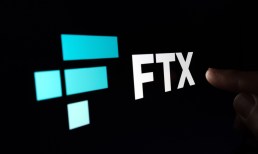The integration of i2c will allow Credit Sesame customers to set and control the card, banking and payments programs on the platform and have more control over their money and spending via personalized features, which the banks hope will appeal to people’s increasingly digital habits, the release states.
Sesame Cash offers a variety of features, including no-cost daily credit score checks, rewards for improving credit, credit and identity protection services, early payday, real-time transaction notifications, simple access to funds, direct deposit, the ability to freeze or un-freeze a card in the app, and integration with most digital wallets.
Nicolas Dinh, general manager of Digital Banking Products with Credit Sesame, said the new partnership would prove advantageous for those living paycheck to paycheck and looking to explore better ways of managing finances.
“Using our data-driven analytics, we can also better match them with credit products from our network of trusted financial partners,” he said, according to the release. “As we expand our services to help more consumers across the globe work towards financial wellness, we’re looking forward to leveraging i2c’s payment processing and customer-centric platform to help us seamlessly launch anywhere.”
i2c president Jim McCarthy said in the release that he is confident that Sesame Cash cardholders “will have better tools to manage their money wisely, while getting rewarded and improving their credit.”
Advertisement: Scroll to Continue
i2c’s Amir Wain told PYMNTS the priority for traditional banks transitioning into digital banking shouldn’t just be to upgrade to the same kind of system they used in years past. Instead, he said there should be more focus on new enhancements that offer new, more high-tech options for customers to take advantage of.
Those upgrades might be more difficult, he said, but they could make traditional banks more competitive against newer FinTechs.




